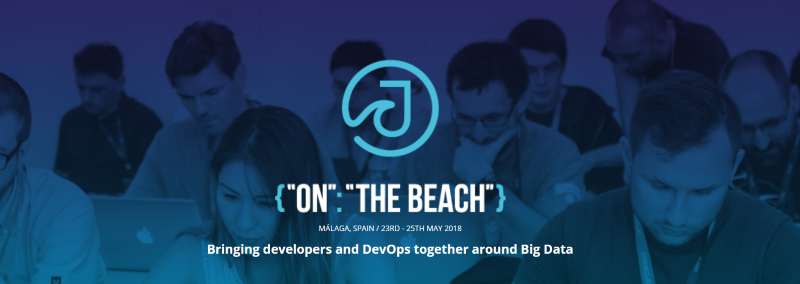Time traveling with graph databases
Graph databases are often used to analyze relations within highly interconnected datasets. Social networks, recommendation engines, corporate hierarchies, fraud detection or querying a bill of materials are common use cases. But these datasets change over time and you as a developer or data scientist may want to time travel and analyze these changes.
While ArangoDB may not come with built-in support for managing the revision history of graph data, we’ll show in this article how to manage it in a performant manner for some general classes of graphs. Best of all, this won’t require any groundbreaking new ideas. We’ll simply borrow a few tools and tricks from the persistent data structure literature and adapt them for good performance within ArangoDB. We hope that this will help enable new ways to use everyone’s favorite avocado-fueled datastore, and power some useful applications. Read more
Speeding Up Dump Restore in ArangoDB: Enhanced Data Recovery
Many ArangoDB users rely on our `arangodump` and `arangorestore` tools as an integral part of their backup and recovery procedures. As such, we want to make the use of these tools, especially `arangodump`, as fast as possible. We’ve been working hard toward this goal in preparation for the upcoming 3.4 release.
We’ve made a number of low-level server-side changes to significantly reduce overhead and improve throughput. Additionally, we’ve put some work into rewriting much of the code for the client tools to allow dumping and restoring collections in parallel, using a number of worker threads specified by `–threads n`. Read more
Data retrieval performance optimizations in ArangoDB 3.3.9
![]() Our recent release 3.3.9 includes several performance optimizations for data retrieval cases. Benefits can be expected for both storage engines, MMFiles and RocksDB, AQL batch lookup queries, and cluster AQL queries.
Our recent release 3.3.9 includes several performance optimizations for data retrieval cases. Benefits can be expected for both storage engines, MMFiles and RocksDB, AQL batch lookup queries, and cluster AQL queries.
MMFiles index batch lookups
For the MMFiles engine, an optimization has been made for retrieving multiple documents from an index (hash index, skiplist index or persistent index) in a batch.
Read more
An implementation of phase-fair reader/writer locks
We were in search for some C++ reader/writer locks implementation that allows a thread to acquire a lock and then optionally pass it on to another thread. The C++11 and C++14 standard library lock implementations std::mutex and shared_mutex do not allow that (it would be undefined behaviour – by the way, it’s also undefined behaviour when doing this with the pthreads library).
Additionally, we were looking for locks that would neither prefer readers nor writers, so that there will be neither reader starvation nor writer starvation. And then, we wanted concurrently queued read and write requests that compete for the lock to be brought into some defined execution order. Ideally, queued operations that cannot instantly acquire the lock should be processed in approximately the same order in which they queued. Read more
ArangoSearch architecture overview
In this article, we’re going to dive deeper into our recently released feature preview in Milestone ArangoDB 3.4 – ArangoSearch which provides a rich set of information retrieval capabilities. In particular, we’ll give you an idea of how our search engine works under the hood.
Essentially ArangoSearch consists of 2 components: A search engine and an integration layer. The former is responsible for managing the index, querying and scoring, whereas latter exposes search capabilities to the end user in a convenient way.
Foxx CLI – Managing Microservices
Anyone who has ever worked with our JavaScript framework Foxx was faced at some point with the challenge to install its Foxx service in its current ArangoDB instance or to replace the installed service with local code changes. This is not a big deal and can easily be done through ArangoDB’s WebUI. However, we developers always want to become more productive and clicking through a graphical UI is not the best way. Furthermore, this procedure is almost impossible to use in an automated deployment process. That’s why we decided to develop a node-based CLI tool to manage Foxx services, called Foxx-CLI, which we already released in version 1.1.
Static binaries for a C++ application
ArangoDB is a multi-model database written in C++. It is a sizable application with an executable size of 38MB (stripped) and quite some library dependencies. We provide binary packages for Linux, Windows and MacOS, and for Linux we cover all major distributions and their different versions, which makes our build and delivery pipeline extremely cluttered and awkward. At the beginning of this story, we needed approximately 12 hours just to build and publish a release, if everything goes well. This is the beginning of a tale to attack this problem. Read more
Win your free ticket and join ArangoDB @ JontheBeach 2018

We are thrilled to be attending one of Europe’s greatest events – JontheBeach (JOTB), an international rendezvous for developers and DevOps around Big Data technologies. No product talks just deep-tech topics presented by hand-picked speakers from Google, Apache Spark, RedHat, Stripe, Microsoft and many more. Read more
Welcome to the ArangoDB family, Ted Dunning!
We are absolutely thrilled to announce that one of the brightest and most respected minds in open-source software joins ArangoDBs Advisory Council. Hi, Ted and welcome to the ArangoDB family!

For those who don’t know Ted Dunning yet, maybe a quick introduction and the reason why the whole team is so amazed that he supports the project. Ted Dunning is Chief Application Architect at MapR, holds a PhD in computer science and is committer as well as PMC member of the Apache Mahout, Zookeeper and Drill projects. Besides his 25 patents, and even more pending, he mentors multiple well-known Apache projects like Storm, Flink, or DataFu with his broad experiences across industries and technologies. Ted contributes so much to the open-source world and we feel blessed to have him on board at ArangoDB. Read more
ArangoDB Easter Egg Hunt: Join the Fun and Discover Surprises!

While working hard on the next release and hacking away new interesting things to include into our favourite database, we decided to take a short break to have some fun just in time for Easter. All teams gathered together to do some Easter eggs coloring, chocolate-eating and fun-having 🙂
We’ve colored a lot of eggs in our favourite colors – green and brown, and hid them all around our office and beyond. Now, here is a little challenge for you to help us find them. Read more
Get the latest tutorials,
blog posts and news:
Thanks for subscribing! Please check your email for further instructions.
 Skip to content
Skip to content 